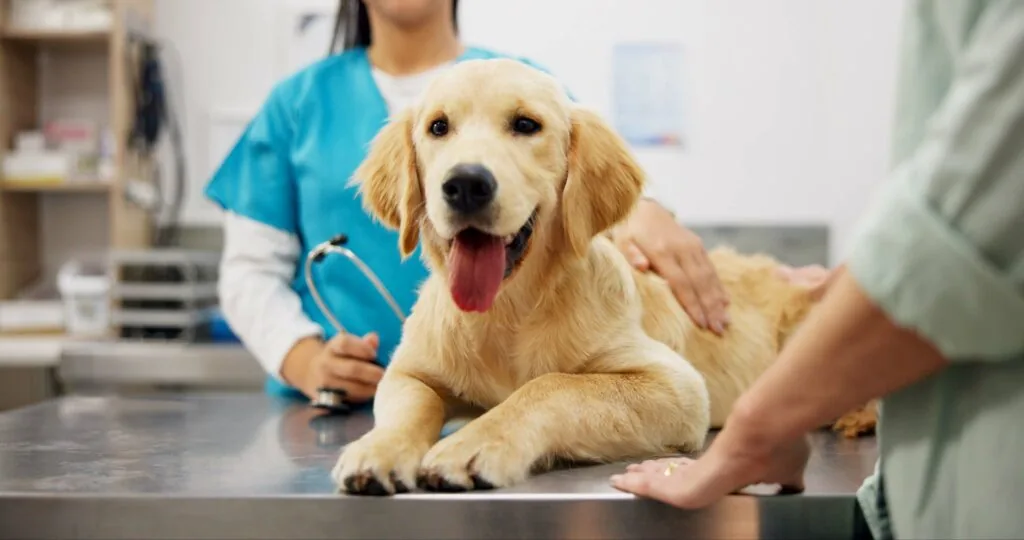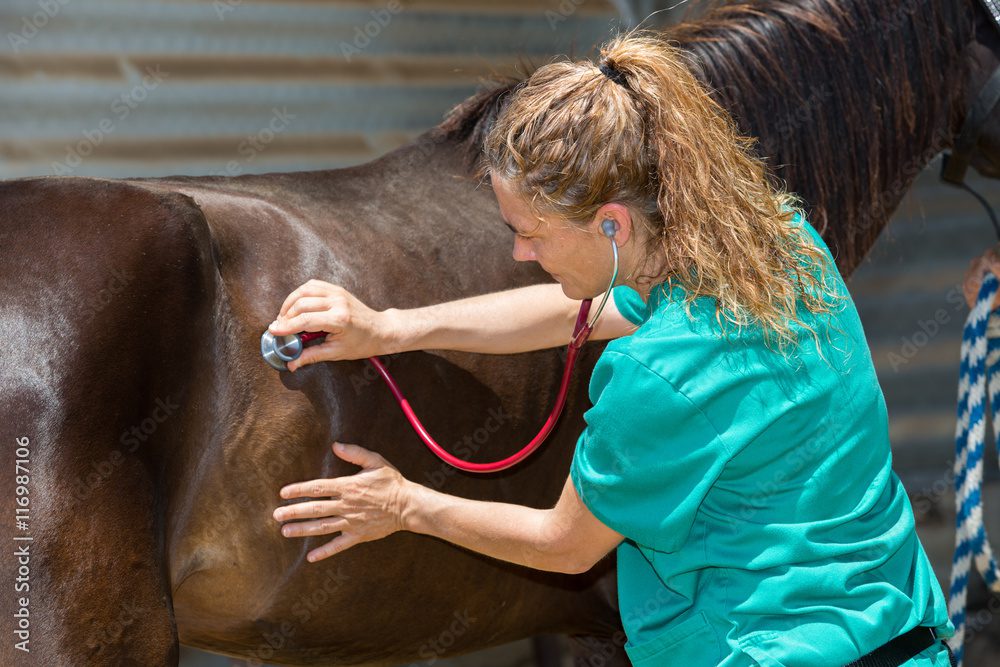When Should I Be Worried About My Dog’s Panting?
Panting is a natural and common behavior in dogs, often serving as a way to regulate body temperature or express excitement. However, there are instances when your dog’s panting could signal something more serious. In this blog, we’ll explore the reasons behind dog panting, when you should be worried, and how Southcentral Veterinary Services can help. If you notice unusual panting in your dog, call (270) 282-2564 or schedule an appointment online.

When Is Dog Panting Considered Normal?
Panting is one of the primary ways dogs cool down, as they don’t sweat like humans. When a dog pants, they rapidly breathe in air, which helps evaporate moisture from their tongue and the lining of their lungs, cooling their body. Typically, panting occurs after physical activity, during hot weather, or when your dog is excited. Normal panting is characterized by a steady and unlabored breathing pattern or if it follows exercise, playtime, or exposure to heat.
For example, after a vigorous walk or a session of fetch, your dog might pant heavily, but this should subside after they rest and cool down. Excitement or anxiety, such as when meeting new people or hearing loud noises, can also cause temporary panting. In these cases, panting is typically not a cause for concern and will resolve once the stimulus is removed or your dog calms down.
Signs of Abnormal Panting in Dogs
While panting is generally normal, there are times when it can indicate an underlying health issue. Abnormal panting can be identified by changes in the intensity, duration, or sound of your dog’s breathing. If your dog’s panting is excessively heavy, prolonged, or occurs at rest without any obvious trigger, it may be a sign that something is wrong.
Common Causes of Abnormal Panting
Several health conditions can cause abnormal panting in dogs.
- Heatstroke causes abnormal panting, especially during the warmer months. Dogs are more susceptible to overheating than humans, and heavy panting, drooling, and weakness are early signs.
- Respiratory issues, such as bronchitis or laryngeal paralysis, can lead to labored breathing.
- Heart problems, like congestive heart failure, often manifest as excessive panting due to the heart’s inability to pump blood effectively.
- Pain, whether from an injury or an underlying condition like arthritis, can also cause your dog to pant excessively.
When You Should Contact Southcentral Veterinary Services
If your dog’s panting is accompanied by other symptoms, such as coughing, wheezing, vomiting, or lethargy, it’s time to consult a veterinarian. Likewise, if the panting doesn’t subside after a period of rest, occurs at unusual times, or is paired with behavioral changes like restlessness or reluctance to move, you should seek professional advice.
Emergency Situations Requiring Immediate Attention
If your dog is panting heavily and shows signs of distress, such as a swollen tongue, pale or blue gums, or difficulty standing, these could be symptoms of heatstroke or a severe respiratory issue. Another red flag is if your dog collapses or becomes unresponsive while panting, which may indicate a heart-related emergency. In such cases, contact Southcentral Veterinary Services immediately at (270) 282-2564 or rush your pet to the nearest emergency clinic.
How to Manage and Prevent Abnormal Panting
To help prevent abnormal panting, manage your dog’s environment and health proactively:
- During hot weather, ensure your dog has access to shade, fresh water, and a cool place to rest.
- Avoid strenuous activities during the peak heat of the day and never leave your dog in a parked car.
- Regular veterinary check-ups can also help identify and manage potential health issues before they become serious.
- If your dog has been diagnosed with a condition that could cause abnormal panting, follow your veterinarian’s advice on managing their symptoms.
Long-Term Health Monitoring
Keep a close eye on your dog’s behavior, noting any changes in their activity level, eating habits, or breathing patterns. If your dog is on medication, follow the dosage instructions carefully and report any side effects to your vet. Regular blood tests, x-rays, or other diagnostic tests may be recommended by your veterinarian to monitor your dog’s health over time.
How Southcentral Veterinary Services Can Assist with Dog Panting Concerns
At Southcentral Veterinary Services, we understand how concerning it can be to notice changes in your dog’s breathing. Our team is equipped with the expertise and tools to diagnose and treat a variety of conditions that can cause abnormal panting. Whether it’s a routine check-up or an urgent concern, our veterinarians are here to help ensure your dog stays healthy and happy. Don’t wait for a small issue to become a major problem—if you’re worried about your dog’s panting, call us at (270) 282-2564 or schedule an appointment online today.
Share This
Recent Posts
About Southcentral Veterinary Services
Southcentral Veterinary Services is here to ensure that you and your pet can access a variety of high-quality, progressive medical services. Our aim is to serve our patients and clients with integrity, compassion, and a focus on being your primary family vet.



